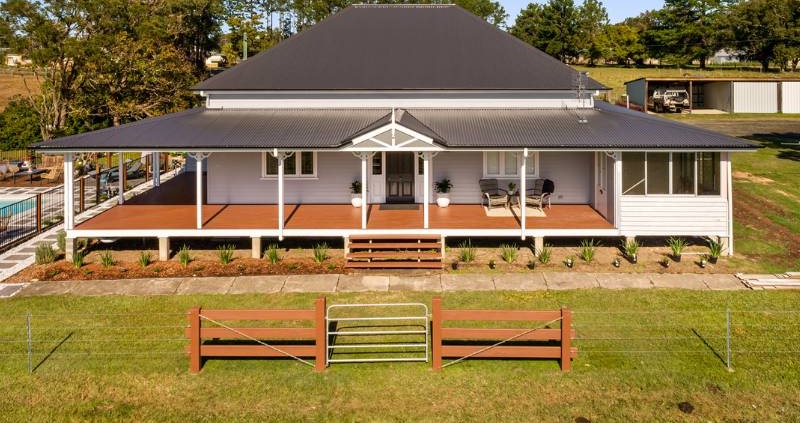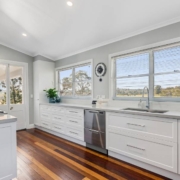Tips for Planning a Successful Home Extension in Gympie
Planning a home extension in Gympie can be an exciting yet daunting task. Whether you’re adding an extra bedroom, expanding your kitchen, or creating a new living space, a well-thought-out plan is essential. This guide offers practical tips on budgeting, design considerations, choosing local contractors, and navigating council regulations to ensure your home extension project is successful and stress-free.
Understanding Your Needs
Before diving into the planning process, take the time to understand your specific needs. What do you want to achieve with your extension? Whether it’s more space for a growing family or enhancing the value of your property, clearly defining your goals will help streamline the process.
Setting a Realistic Budget
Initial Cost Estimates
Start by getting a rough estimate of how much your extension will cost. This includes materials, labour, permits, and any additional expenses. It’s a good idea to get quotes from multiple contractors to ensure you’re getting a fair price.
Contingency Fund
Always set aside a contingency fund—around 10-15% of your total budget—to cover unexpected costs that may arise during construction.
Design Considerations
Functional Design
Think about how the new space will be used and design accordingly. Consider flow, accessibility, and how the extension will integrate with the existing structure.
Aesthetics
The extension should blend seamlessly with your home’s current design. This includes matching the architectural style, materials, and colour scheme.
Choosing the Right Contractor
Local Expertise
Hiring a local contractor with experience in Gympie’s building environment is crucial. They’ll be familiar with local regulations and suppliers, ensuring a smoother process.
Checking References
Always ask for and check references. A reputable contractor will have a portfolio of past projects and satisfied clients willing to share their experiences.
Navigating Council Regulations
Planning Permits
Before starting your extension, check with the Gympie Regional Council to see if you need planning permits. This will depend on the size and scope of your project.
Building Codes and Standards
Ensure your extension complies with local building codes and standards. This includes structural integrity, safety, and energy efficiency requirements.
Maximising Space and Light
Open Plan Design
Consider an open plan design to maximise space and light. This can make the extension feel larger and more connected to the rest of your home.
Natural Light
Incorporate plenty of windows and skylights to bring in natural light. This not only enhances the aesthetics but also reduces the need for artificial lighting.
Sustainable Building Practices
Energy Efficiency
Opt for energy-efficient materials and appliances. This will reduce your long-term energy costs and make your home more environmentally friendly.
Sustainable Materials
Choose sustainable materials, such as recycled timber and eco-friendly insulation, to minimise your environmental impact.
Planning for Future Needs
Flexible Design
Design your extension with future needs in mind. This includes creating spaces that can be easily adapted as your family’s needs change.
Long-Term Durability
Invest in high-quality materials and construction methods to ensure the extension stands the test of time.
Managing the Construction Process
Clear Communication
Maintain clear and open communication with your contractor throughout the project. Regular updates and meetings will help keep everything on track.
Timeline Management
Work with your contractor to establish a realistic timeline and stick to it as closely as possible to avoid unnecessary delays.
Finishing Touches
Interior Design
Once the construction is complete, focus on the interior design. This includes choosing paint colours, flooring, and furnishings that complement the new space.
Landscaping
Don’t forget the exterior. Landscaping around your extension can enhance the overall look and feel of your home.
Final Word
Planning a home extension in Gympie doesn’t have to be stressful. By understanding your needs, setting a realistic budget, choosing the right contractor, and navigating council regulations, you can ensure a successful project. Remember to incorporate sustainable practices, maximise space and light, and think about future needs to create a functional and beautiful addition to your home.
FAQs
- What permits do I need for a home extension in Gympie?
- You’ll need planning permits from the Gympie Regional Council, depending on the size and scope of your project. Check local regulations before starting.
- How can I choose the right contractor for my extension?
- Look for a local contractor with experience in similar projects. Check their references, portfolio, and ensure they have the necessary licenses and insurance.
- What should be included in my budget for a home extension?
- Include costs for materials, labour, permits, and a contingency fund for unexpected expenses. Getting multiple quotes can help you set a realistic budget.
- How can I ensure my extension is energy-efficient?
- Use energy-efficient materials and appliances, incorporate natural light through windows and skylights, and consider sustainable building practices.
- What are some design considerations for a home extension?
- Focus on functional design, ensuring the extension integrates seamlessly with your existing home. Consider the flow, accessibility, and aesthetics to create a cohesive space.




